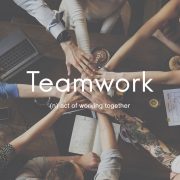Objectives of Team Building When Motivating Millennials
By size and force, the Millennial Generation has overtaken the Baby Boomers. In the business arena, this means that the objectives of team building must be squarely focused on these 18 to 34 year titans and titan-wannabes.
“Their ideal work environment looks like a frat house or the student union building at college.”
“They expect to receive an ‘E’ for effort just like mommy gave them.”
“The letter ‘L’ stands for ‘Later,’ not ‘Loyalty.’”
These so-called rules of disengagement among Millennials may be more myth and suburban legend than fact.
Recent studies reveal that Millennials value work stability and continuity as much as their parents and grandparents did. The difference is that, unlike dad and granddad, if these young workers don’t like the job, they leave. Money matters, of course, but so does personal fulfillment. They may not be so willing to diligently build a set of skills or carefully cultivate their talents and then not get to use them at work.
Millennials are the most ethnically diverse and the most technologically adapted generation in America’s history. Ready or not, they will define the rules of engagement in corporate America. So the objectives of team building in your company should reflect their core values.
While Millennials are marrying later in life, they’re not commitment-phobic. They value a workplace that cares about more than just making money. A company that practices and invests in social responsibility is one that will keep Millennial workers engaged. On-going involvement in charitable team building projects should be part of your corporate culture.
Ironically, for Millennials, many of your objectives of team building should involve teaching them how to be outstanding team members while helping them learn how to stand out from the team at the same time.
Seminars on how to develop executive presence, professional presentation skills, and leadership training may appeal to Millennials because they’re eager to scale the corporate ladder to the top echelons of management. Recognizing their talents and abilities and helping them to become better leaders may foster a stronger sense of inclusion and loyalty to the company over the long term.
Equally important to Millennials is a company that embraces technology and innovation. So your team building exercises should perhaps include opportunities for creative young minds to explore out-of-the-box ways to develop team building sensibilities. Even innovative ideas that don’t quite pan out can still be inspirational and may spark exciting ideas among veteran staffers.








